Adopting the above question as a common theme, the Toyota Konpon Research Institute has been hosting its own eponymous lecture series since fiscal 2022. The aim of this initiative is twofold: to raise interest in the flow of knowledge that links science, technology, and engineering; and to develop a foundation that interconnects the intelligence acquired through this initiative to the full-scale research undertaken by Toyota Group companies. This lecture series introduces the latest scientific findings to a wider audience, aiming to improve scientific literacy by providing novel perspectives, broader horizons, and elevated viewpoints.
In addition to presenting our conventional lecture series, we launched our new Outlook Program in fiscal 2024 that employs the concept of posing the same questions. This program is designed for those who aspire to make use of cutting-edge research and aims to support them in shaping their future outlook through dialogue with the lecturers. It provides an opportunity to consider the journey of fundamental science up to the present day, to ponder how it will develop in the future, and to envision how it will interact with our technology.

Life Science

Science of Intelligence/
Intellect

Science of Matter/
Materials
The human body comprises 11 major organ systems, which in turn are composed of an astonishing 37 trillion cells. In these life systems, which are grounded in concepts much different from those common to present-day engineering, substances are metabolized randomly while functionality and appearance are maintained, which results in systems that are both efficient and highly rational.
In the first session, “Life from a Cellular Perspective," we took an overarching view of all life systems starting with the basic unit of life, the cell. In the second session, “Autophagy as the Guardian of Life," we examined the formation of unique response environments and the mechanisms of material transport in living systems. In the third session, “The Future of Autophagy Manipulation," we studied the cutting edge of the life sciences as we enter an era characterized by a shift from elucidation to intervention.
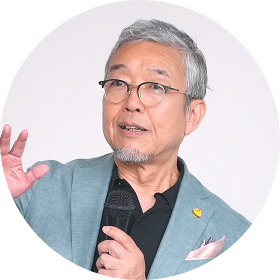
Tamotsu Yoshimori
Specially Appointed Professor
Comprehensive Health Promotion Science Program
Division of Health Sciences Graduate School of Medicine
The University of Osaka
In our 2023 lecture series, we presented a conference broadly focused on AI, but over the following year, Generative AI emerged at an even more rapid pace, taking the world by storm. Acknowledging this trend in fiscal 2024, we focused the conference theme specifically on Generative AI.
To discuss this rapidly changing field, we invited three speakers celebrated as researchers as well as business leaders. In the first session, Daisuke Okanohara provided an overview of the rapid evolution of Generative AI and its current application. In the second session, Shota Imai re-evaluated the changes in work and human creativity following the proliferation of Generative AI. In the third session, Junichi Rekimoto delved into the values that will be needed moving forward.
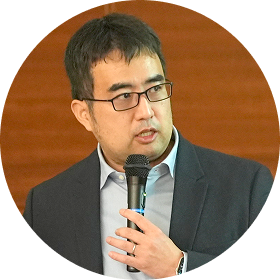
Daisuke Okanohara
Representative Director & Chief Executive Researcher
Preferred Networks, Inc.
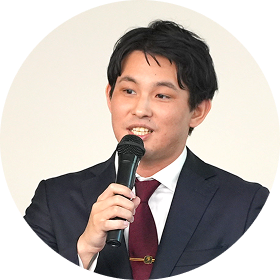
Shota Imai
CEO GenesisAI Co., Ltd.
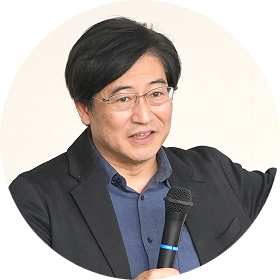
Junichi Rekimoto
Professor
Graduate School of Interdisciplinary
Information Studies
The University of Tokyo
Chief Science Officer / Fellow
Sony Computer Science Laboratories, Inc.
In 2024, we adopted the theme of “Earth and Planetary Science." As humans, we tend to perceive things at the scale we inhabit ̶ the time scale of a human life and the scales of temperature and pressure that humans can endure. However, the materials that surround us have been created on the broad scales of time, temperature, and pressure that have been present on Earth at various times. The Outlook Program, meanwhile, focused on materials and resources viewed from the perspectives of Earth and planetary science.
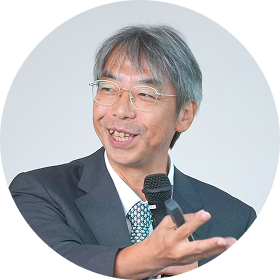
Kei Hirose
Professor,
Department of Earth and Planetary Science,
Graduate School of Science,
The University of Tokyo
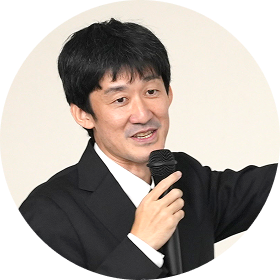
Masayuki Ikeda
Associate Professor,
Department of Earth and Planetary Science,
Graduate School of Science, The University of Tokyo
ChatGPT and other generative AI are changing the world. As AI develops, people are asking again what life is. Dr. Takeuchi's lecture taught us about the origin and evolution of life. We learned that creating a new system requires a lot of time and energy.
Prof. Kobayashi's lecture taught us that death is the end for an individual, but for the evolution of a species, it is the beginning. Prof. Ikegaya asked us what “human nature” is through the contrast between the brain and AI. In this series, we looked at life from many different angles and tried to understand the essence of life science, which is the core of "Monozukuri" (Making Things).
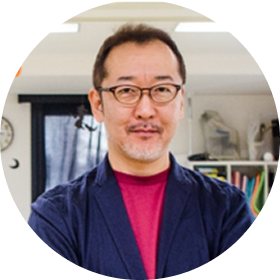
Kaoru Takeuchi
Science Journalist
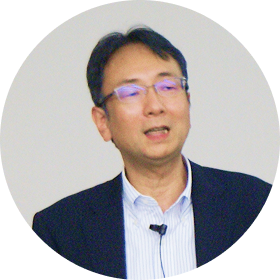
Takehiko obayashi
Professor
Institute for Quantitative Biosciences
The University of Tokyo
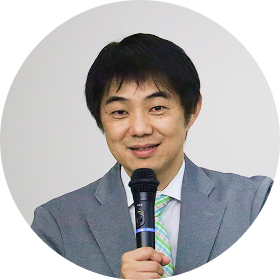
Yuji Ikegaya
Professor
Graduate School of Pharmaceutical Sciences
The University of Tokyo
In the past 50 years, human knowledge has been converted into data. But we haven't yet implemented intellect, which is the ability to find answers to questions with no right answer, or wisdom, which cannot be expressed in formal knowledge. How should humans and AI coexist? Prof. Tsujii's lecture focused on the reliability of AI, Prof. Miyake's on the acceptability of AI, and Dr. Okanohara's on the usability of AI, and approached the question of what the ultimate "happiness" of humans is.
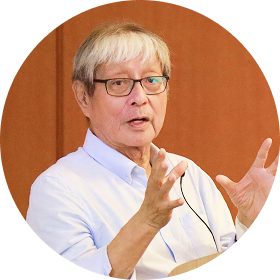
Junichi Tsujii
AIST Fellow, National Institute of Advanced
Industrial Science and Technology
Professor, The University of Manchester
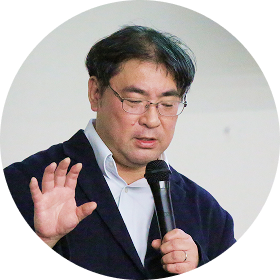
Takehiko obayashi
Professor
Institute for Quantitative Biosciences
The University of Tokyo
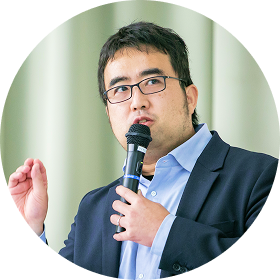
Daisuke Okanohara
Representative Director &
Chief Executive Researcher
Preferred Networks Inc.
In FY2022, we looked at climate change, resources, and materials from the perspective of the Earth system under our feet. In FY2023, we further expanded our perspective to the universe, pursuing the fundamentals of the environment and materials around us. Prof. Miyahara's lecture discussed how the sun affects the Earth's climate and weather. Dr. Oki's lecture outlined the present and future of the Earth using data from satellites. Prof. Murayama's lecture explored the origin of matter (where do we come from?) using the cutting edge of particle physics and astrophysics.
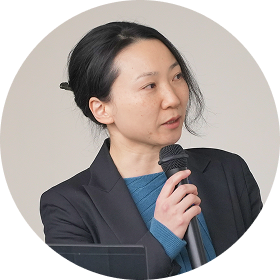
Hiroko Miyahara
Professor,Musashino Art University
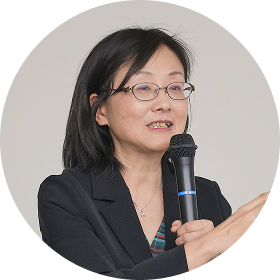
Riko Oki
Director of Earth Observation Research Center,
Japan Aerospace Exploration Agency (JAXA)
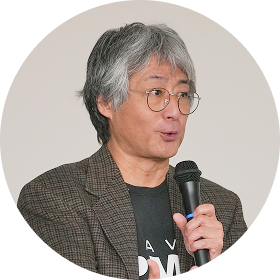
Hitoshi Murayama
Professor, University of California, Berkeley
Professor, Kavli Institute for the Physics
and Mathematics of the Universe (IPMU),
The University of Tokyo
"Carbon neutral", which Toyota Group companies are tackling, is a challenge that occurs in the huge Earth system. To overcome this problem, it is essential to understand the dynamic changes in atmospheric composition on the Earth's surface and the circulation of materials inside the Earth. Also, all the materials we have originate from the Earth. Where, how much, and in what form do the substances exist? Hints of unknown materials are hidden in the Earth. “Where do we come from? Where are we going?” I would like to think together with you based on the latest knowledge of Earth and planetary science explored in the 21st century.
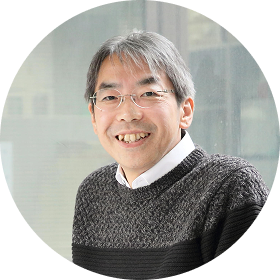
Kei Hirose
Professor,
Department of Earth and Planetary Science,
Graduate School of Science,
The University of Tokyo